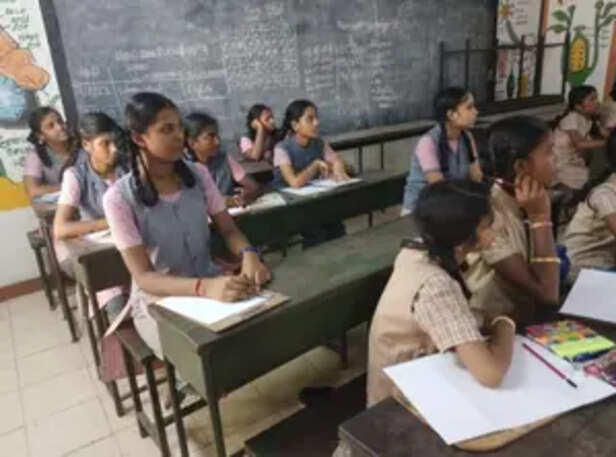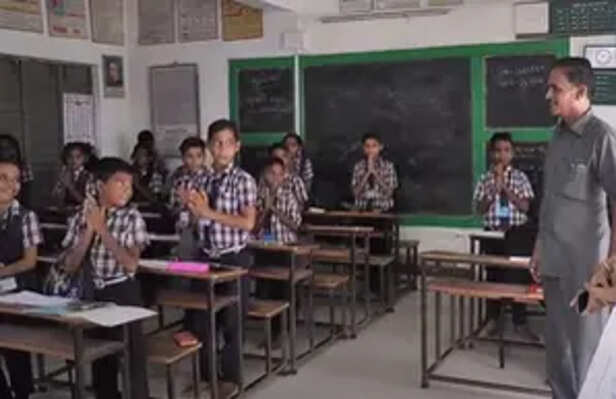Why Our Basic Right to Education Feels Like a Scam in India
Ushnish Samadder | IANS | Jun 09, 2025, 10:55 IST
( Image credit : IANS, Timeslife )
Despite being a fundamental right, education in India often feels inaccessible and unequal. Poor infrastructure in government schools, discrimination in private schools, and the commercialization of learning have turned the Right to Education into an unfulfilled promise. Urgent reforms are needed to ensure quality education reaches every child, not just the privileged few.
When the Indian government introduced the Right to Education (RTE) Act in 2009, it was seen as a landmark step toward a more equitable society. The Act declared education a fundamental right for every child between 6 and 14 years, promising free and compulsory schooling across the nation. It raised hope among millions, especially those from poor and marginalized communities, that their children too could access quality education and a brighter future. But more than a decade later, this promise seems to have crumbled under the weight of poor implementation, neglect, and commercialization.
Yes, education is free on paper — but the reality on the ground tells a different story. Most government schools suffer from inadequate infrastructure. Classrooms are overcrowded, and many lack basic necessities such as clean drinking water, electricity, functional toilets (especially for girls), and playgrounds. A 2023 ASER report showed that less than 50% of schools complied with all RTE norms, making it evident that access doesn’t always mean quality.
Worse, many schools lack sufficient teachers or have underqualified staff. Some schools even operate with a single teacher for hundreds of students, making effective learning nearly impossible. Teacher absenteeism and lack of accountability further erode trust in the system. For children who are the first generation learners in their families, this broken system almost ensures they fall behind and eventually drop out.

One of the key features of the RTE Act was the 25% reservation in private schools for children from disadvantaged backgrounds. While this clause aimed to bridge the class divide, its implementation has been deeply flawed. Many private schools actively discourage or discriminate against RTE students by demanding unofficial fees, not providing books or uniforms, and isolating them within the school environment.
Moreover, navigating the complex admission processes, documentation requirements, and lack of awareness means that many eligible families never even apply. For those who do, the battle doesn’t end with admission — it’s a constant struggle to make their children feel welcome in an often elitist environment.
Today, education in India is increasingly treated as a commodity, not a right. Private schools charge sky-high fees under the guise of “quality education,” while coaching centers, tuitions, and edtech platforms rake in profits by selling the dream of success in competitive exams. The focus is more on marks and ranks than knowledge, creativity, or critical thinking.
Middle-class families often drain their savings for this illusion of better schooling, while the poor are left at the mercy of a crumbling public system. This creates a deepening class divide where education, which should be the great equalizer, becomes a great divider.

The curriculum in many government schools remains outdated and irrelevant to current societal and economic needs. Basic English proficiency, digital literacy, and life skills are either missing or poorly taught. This ensures that children from these schools remain at a disadvantage in higher education or the job market, despite “completing” their schooling.
To truly honor the spirit of the Right to Education, India must do more than just legislate. There needs to be a massive overhaul in public education — with better funding, infrastructure, teacher training, accountability, and transparency. Schools must be inclusive spaces where no child feels unwanted or inferior.
We also need to shift our cultural mindset — from chasing marks to fostering curiosity, creativity, and compassion. Policymakers, educators, and civil society must come together to ensure that education is not a privilege for a few, but a right for all.
Until then, the promise of the Right to Education will continue to feel like a scam — a well-written law that masks a harsh and unjust reality.
Explore the latest trends and tips in Health & Fitness, Travel, Life Hacks, Fashion & Beauty, and Relationships at Times Life!
The Illusion of Free Education
Worse, many schools lack sufficient teachers or have underqualified staff. Some schools even operate with a single teacher for hundreds of students, making effective learning nearly impossible. Teacher absenteeism and lack of accountability further erode trust in the system. For children who are the first generation learners in their families, this broken system almost ensures they fall behind and eventually drop out.

Despite being a fundamental right, education in India often feels inaccessible and unequal.
( Image credit : IANS )
Discrimination and the Private School Trap
Moreover, navigating the complex admission processes, documentation requirements, and lack of awareness means that many eligible families never even apply. For those who do, the battle doesn’t end with admission — it’s a constant struggle to make their children feel welcome in an often elitist environment.
Education as a Business
Middle-class families often drain their savings for this illusion of better schooling, while the poor are left at the mercy of a crumbling public system. This creates a deepening class divide where education, which should be the great equalizer, becomes a great divider.

Today, education in India is increasingly treated as a commodity, not a right.
( Image credit : IANS )
The Curriculum Crisis
The Way Forward
We also need to shift our cultural mindset — from chasing marks to fostering curiosity, creativity, and compassion. Policymakers, educators, and civil society must come together to ensure that education is not a privilege for a few, but a right for all.
Until then, the promise of the Right to Education will continue to feel like a scam — a well-written law that masks a harsh and unjust reality.
Explore the latest trends and tips in Health & Fitness, Travel, Life Hacks, Fashion & Beauty, and Relationships at Times Life!
